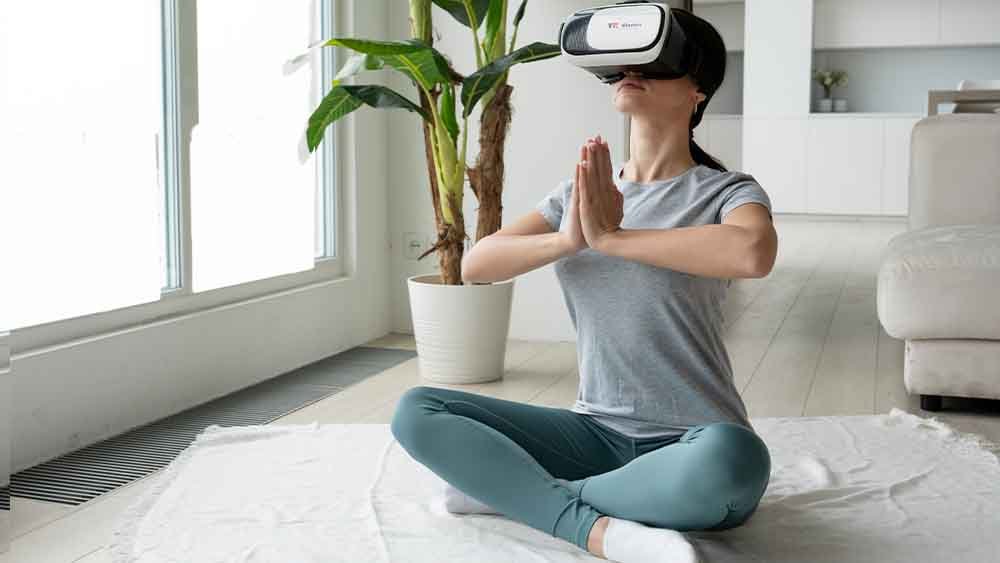
Teenage is the most vulnerable age. You are not a kid anymore, but you are not an adult either. There’s this unchartered territory that brings with it new emotions, responsibilities, struggles, and fears.
With school stress, peer pressure, and the constant flood of digital media, it’s no wonder that around 14% of teens globally struggle with mental health conditions like anxiety, stress, and depression.
Mindfulness offers a powerful antidote to these feelings. It helps you to be fully present, feel grounded, manage your emotions, and reduce anxiety.
Since teens already spend most of their time on their smartphones, mindfulness apps are the perfect tool to bring calm into their chaotic lives. These super helpful platforms make you calm, focused, and more productive.
Below are the top 7 mindfulness apps for teens to find inner peace. Let’s have a look!
What is Mindfulness?
Mindfulness is the practice of feeling and being fully aware of the present moment. Experiencing where we are and what we are doing without judgment.
It’s the ability to live in the present moment, not getting overwhelmed by what’s happening around you. While mindfulness is good for everyone, if you are going through a mental health problem, it works like magic.
Everyone can practice mindfulness. It does not need any fancy equipment or difficult routines. Just simple practices like mindful affirmations, yoga, and focused meditation can help you build a mindfulness lifestyle.
Benefits of Mindfulness Apps: How Well Do They Work?

If we browse, we can find hundreds of mindfulness or mental health apps for teens because they are now in high demand. These grounding apps have proven results in achieving mental health goals. Some of the obvious benefits of mindfulness apps are:
- They reduce fatigue.
- Help lower stress levels.
- Gradually improves sleep.
- Reduce aggression and pressure.
- Improve self-confidence and self-awareness.
- Increase positive attitude towards everything.
- Enable the mind to focus on the present moment.
- Lowers friendship anxiety, generalized anxiety, and depression levels.
Simple Ways to Become More Mindful
Mindfulness apps can play a vital role in helping people achieve their mental health goals. However, implementing simple mindful approaches in daily life can improve your overall experience and make you more aware of even a single act.
Mindful Breathing: Spare a few moments from your daily routine. Inhale with nose then exhale with mouth, and feel the breathing sensation.
Body Scan: Sit in a comfortable place to scan your body. Feel the areas in your body where you feel discomfort. Now, inhale and exhale slowly, allowing those areas to relax.
Savoring: Whatever you are enjoying—eating, drinking, walking, listening, or viewing—spend some time engaging with your senses fully. Now feel the aroma, flavor, texture, temperature, and visual appeal of what you are enjoying.
Gratitude Practice: List down the things or moments you are most grateful for. Close your eyes, stay in the present, and be thankful for them for a while. This is called gratitude meditation. It helps you think about good things in life and decrease teenage anxiety.
Daily Reflection: Every day, pause for a few minutes and reflect on your all-day experiences without judgment. The most effective way is by asking daily self-reflection questions. This way, you can find passion in life by deeply analyzing your interests.
Yoga: Make some time in your daily routine for yoga. It is a powerful, simple meditation technique. It has many forms, such as kundalini yoga, hatha yoga, yin yoga, and baby yoga.
Use Tech Mindfully: Take a mindful approach to using technology. Set timings for mobile use, block any distracting websites. Replace doom-scrolling with healthy activities like walking or exercising.
Top 7 Mindfulness Apps For Teens
We picked the top 7 mindfulness apps for teens. They can freely try everyone and settle with one that suits their needs. Let’s take a look one by one:
1. Headspace

As one of the first mindfulness apps, Headspace is our top pick. With its user-friendly interface, it’s the best app for teens or beginners who want to start on their mindfulness journey.
Available On:
How Headspace Works
To use Headspace, you have to subscribe to its paid plan. However, you can enjoy it free with its free 7-day trial.
First, when you sign up and open the app, you will see the ‘Today’ section with videos of morning, afternoon, and evening.
If you are not interested in daily routine, you can head to the ‘Explore’ sections and browse any video on mindfulness in the four main categories of meditation, movement, sleep, and music.
| Pros | Cons |
| Huge variety of meditation and mindfulness videos for teens and experienced. | When the free trial is over, you can’t access the app until you subscribe to a payment plan. |
| Teens-friendly and family-friendly content available. | Sometimes it’s customer service is hard to get in touch. |
| Has podcast videos, exercise tutorials, and short videos. |
2. Calm
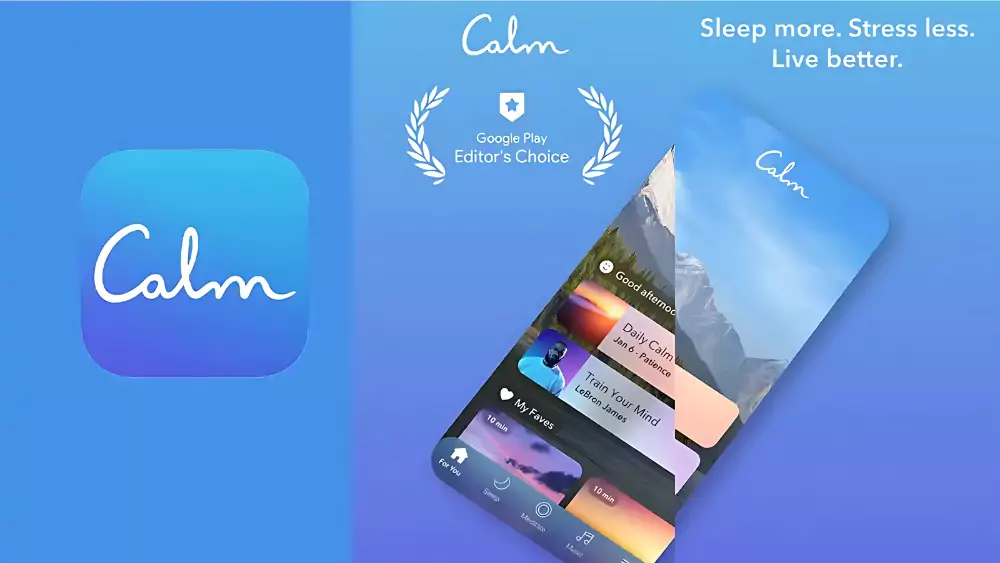
Calm is a top-rated relaxing meditation app that improves sleep and works like an anger management app. It has many features, from meditation to soundscapes, music, and stories, bringing calm to life. Calm has content for all age groups, from kids to adults.
Available On:
How Calm Works
This app works according to your mood and desires and recommends ways to calm yourself.
It offers free services, but you can unlock all its features with the annual subscription plan.
You can select meditation from its 11 categories: meditation, daily calm (dailies), sleep, wisdom, music, kids, soundscapes, movements, check-ins, work, and breathing.
| Pros | Cons |
| Calm is easy to access and navigate. | Requires a premium subscription to enjoy all the features. |
| It has a wide range of content libraries for everyone. | It can be daunting to decide where to start with a lot of offerings. |
| It claims to add research and evidence-based content to the app library. |
Read Also: VR Meditations Apps For Teens
3. Smiling Mind
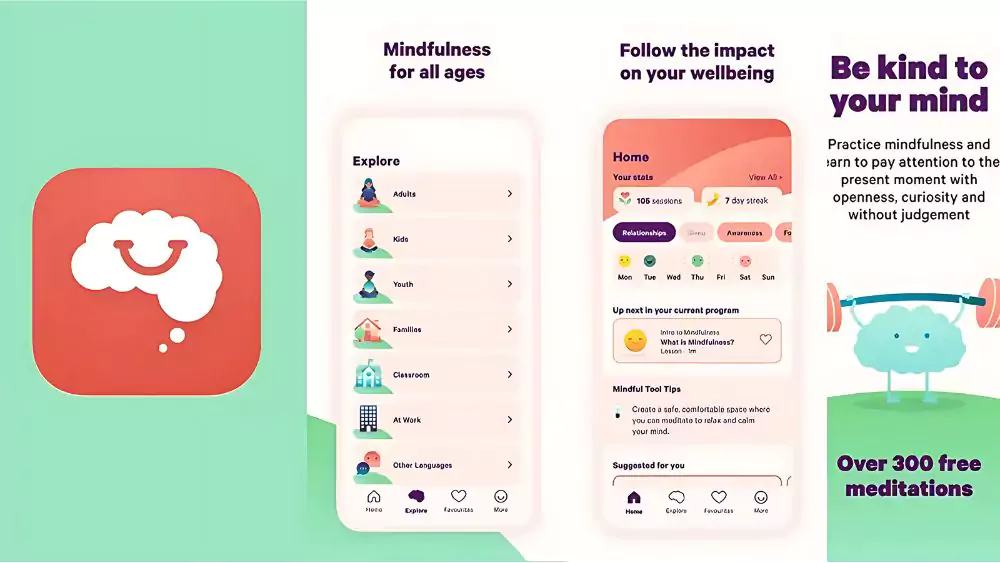
It is also one of the best mindfulness apps for teens. Smiling Mind is an app built to promote mental health through mindfulness and meditation techniques. It has all the content to relax and lower the pressure and stress. Smiling Mind is designed to use 3+ age groups.
Available On:
How Smiling Mind Works
The Best part of the app is that it doesn’t require you to subscribe to a plan. It is available for free on the web, Google Play, and Apple. It offers auditory meditations, written exercises, and programs for teens and kids. It also includes a whole series for use in schools and students can learn how to achieve friendship goals.
| Pros | Cons |
| It is free of cost. | Before each activity, you have to answer some quite annoying questions. |
| Mindful exercises for a variety of age groups. | It does not recommend how many exercises to do in a day. |
| Improve mood and gratefulness. |
4. Insight Timer
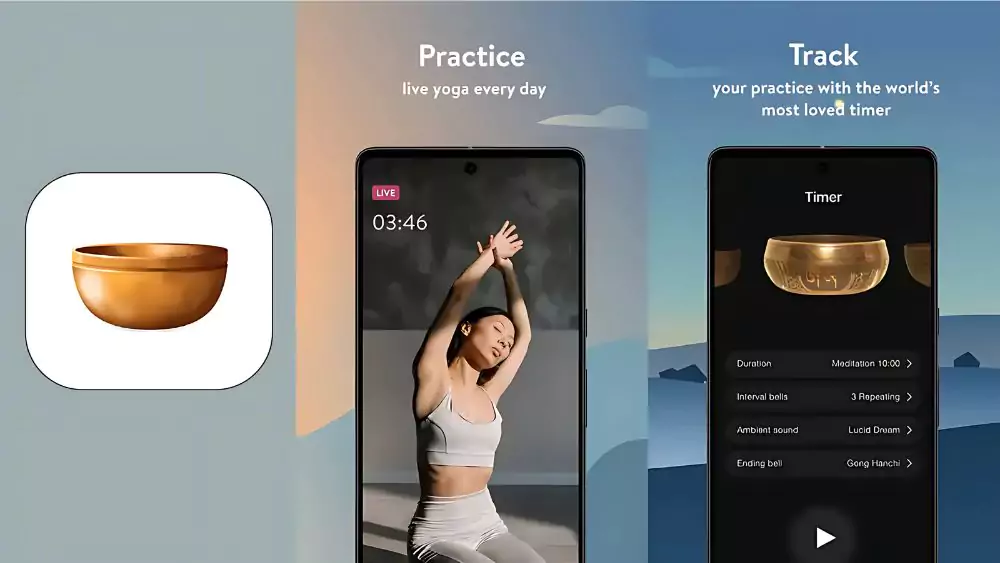
Insight Timer claims to be the best app for stress and anxiety. It has several mindfulness and breathwork exercises, bedtime stories, soothing music tracks, guided visualizations, multi-day courses on wellness, and podcasts.
Available On:
How Insight Timer Works
Insight Timer offers a free version and a premium version with a 7-day free trial. When you open the app, a positive quote will do a mood check-in for you. This app is the perfect piece for ambitious teens with a variety of programs to choose from on their own.
| Pros | Cons |
| Around 3,000 courses for wellness. | The free version does not give access to the full app. |
| Most features are available in the free version. | Free trial just for 7 days. |
| User-friendly and affordable. |
Read Also: Gratitude Quotes For a Positive Mindset
5. Three Good Things
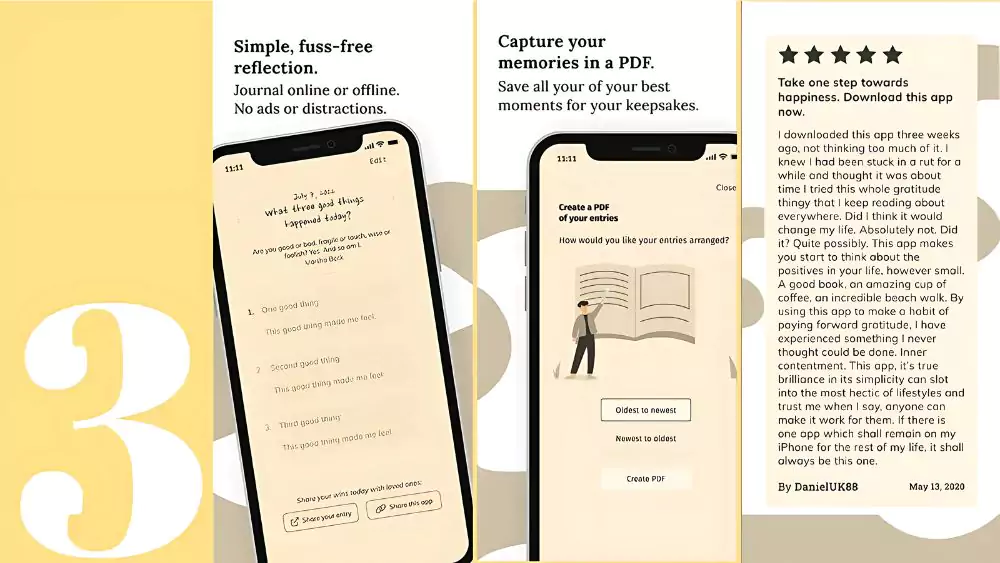
It is also one of the top-rated mindfulness apps for teens. Three Good Things is one of the best gratitude journaling apps and self-esteem apps that promotes mindfulness rather than meditation. Writing down three good things in a day helps build gratitude and positivity.
Available On:
How Three Good Things Works
As you open the app, a simple question prompts, “What went well today?” The responses to this question are limited to 100 characters to respond quickly and in a pressure-free manner. It is free with no subscription plan.
| Pros | Cons |
| Simple and yet working for all age groups. | No features for meditation. |
| Suitable for all age groups. | |
| Creates a beautiful habit of grateful in teens. |
6. Aura

Aura is an excellent app created to boost mood and improve well-being. Its AI-based algorithms gather data on how you use the app and give a personalized experience based on your preferences.
Available On:
How Aura Works
With the Aura free version, you can enjoy a three-minute session a day for a week. With its paid plan, you can experience exercises such as meditation, breathwork, coaching, hypnosis, music, and much more. When you open the app, you have to answer short questions about what you expect from it. Based on the answers, it gives suggestions for mindfulness and others.
| Pros | Cons |
| Give a personalized experience. | You can only avail free trial if you subscribe to the annual plan. |
| Notified you daily to meditate. |
7. Waking Up
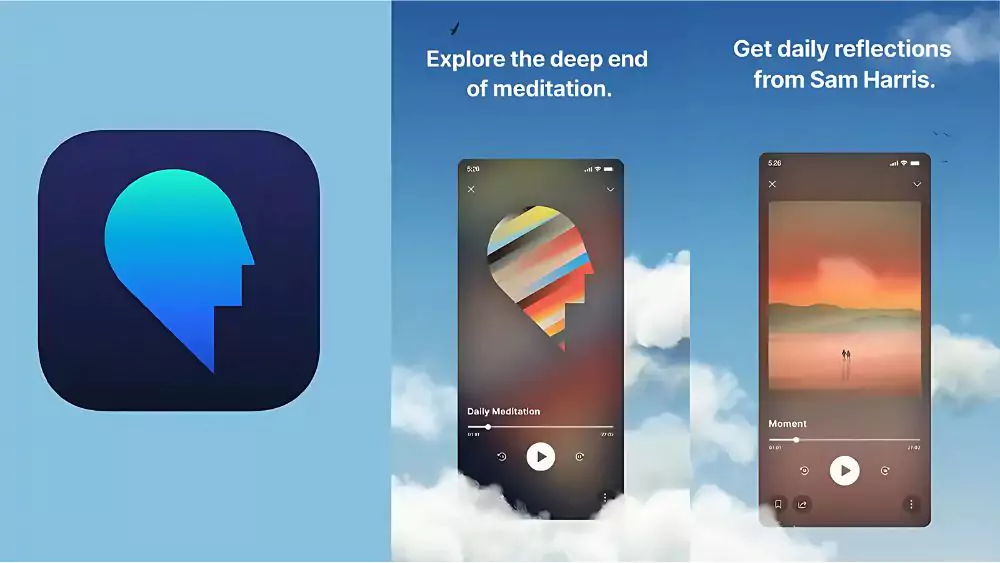
It’s a comprehensive app for reshaping the lives of every age group with mindfulness. Sam Harris introduced a life-changing app with the three main functions of theory, practice, and timer.
Available On:
How Waking Up Works
The app encourages users to learn thought-provoking lessons from Sam Harris. The most exciting fact is that one can ask for a free subscription if one can’t afford a plan. Plus, Sam Harris claims to refund unsatisfied users.
| Pros | Cons |
| User-friendly app with a guided coach. | Has fewer features as compared to competitor apps. |
| One can easily afford this life-changing app. |
Final Thoughts
The Internet has its pros and cons, but these mindfulness apps are one of the best things about technology.
In today’s fast-paced world, it’s easy for teens to feel overwhelmed and stressed. Mindfulness apps offer a valuable tool to help tackle these challenges. By practicing mindfulness, teens can cultivate focus, self-awareness, and emotional resilience.
With a curated list of meditation apps for teens, it’s easy to find a perfect one. These apps help teens calm their raging emotions, be more present, make new friends (especially as introverts), and make mindful choices.
So, why wait? Start your mindfulness journey today and discover the transformative power of being present.
Related Guide:



